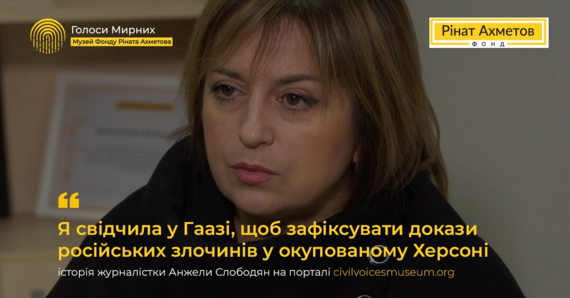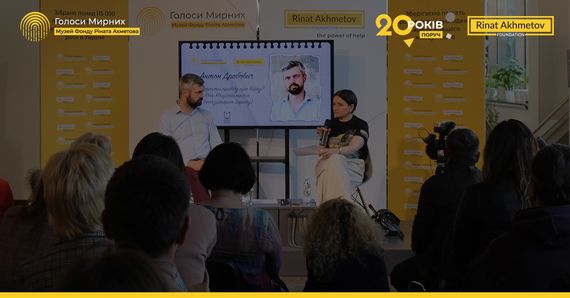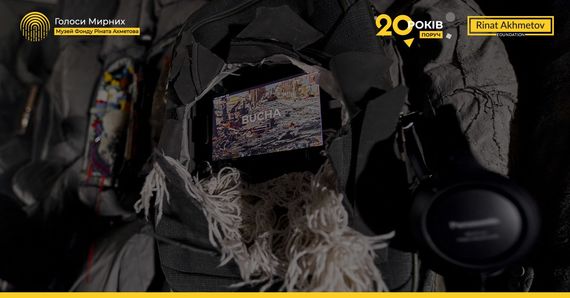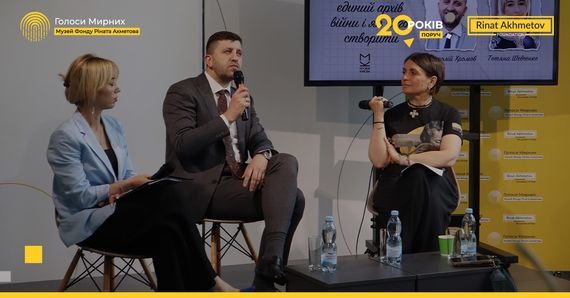“I Testified in The Hague to Record Evidence of Russian Crimes in Occupied Kherson”: Journalist Anzhela Slobodian Shared Her Story With the Museum of Civilian Voices of the Rinat Akhmetov Foundation

A year ago, on 11 November 2022, the Armed Forces of Ukraine liberated the city of Kherson. People who survived the horrors of the occupation share their stories, revealing to the world the truth about the atrocities of the Russian invaders. Anzhela Slobodian, then a journalist of Ukraine television and radio company, worked in the city and was taken captive. After being released from detention, she was able to escape from Kherson and later appeared as a witness in the People’s Court against Putin in The Hague. Anzhela shared her story with the Museum of Civilian Voices of the Rinat Akhmetov Foundation.
From the early days of the occupation, Anzhela was aware that she would not be able to leave Kherson because her name was on the Russians’ “blacklists”. That is why she decided to go all this way as a journalist: to see and record what was happening. She did it as cautiously as possible.
“I had two phones. I filmed everything on one phone, and I had the other phone – with a Russian SIM card – to divert attention. I went on the air from different apartments. It was dangerous to do the work, that is why I covered up my tracks every time,” says Anzhela.
In early July 2022, she was detained. The journalist was just preparing the news story when she saw a man in a balaclava climb over the fence. Her intuition and life experience prompted her not to resist. With a bag put on her head, she was taken to the city detention centre.
“I was not beaten. They only exerted psychological pressure and interrogated me. But I heard how other people were tortured. Both on the floor above me, where people were beaten and shooting was heard, and on the floor below mine, where they were interrogated, using electric current. And the first round of beating of newly detained and delivered people took place near our cell. Cell number six,” Anzhela recalls in detail.
She was released on the 31st day, after they forced her to sign a bunch of papers, including a statement of her consent not to leave [the city]. However, she still found a way to escape, and later gave valuable testimony in the People’s Court in The Hague, a symbolic tribunal against Putin with the participation of real lawyers and witnesses.
“I believe in real punishment. I give testimony for the evidence of crimes to be recorded at the Ukrainian Tribunal and added to the materials of the International Criminal Court. The war will end and there will be a real trial where the evidence will be used,” Anzhela said during her participation in the court hearings in The Hague.
Anzhela Slobodian talks about the women who were in the cell with her, the organization of her escape from the occupied city, and Berehynias [fig. – female spirits protecting the home (Ukrainian folklore)] who, in her opinion, saved Kherson. Anzhela’s story is available at the link https://bit.ly/3SB604e
Every war story matters. To keep the memory for a better future, share your story on the portal of the Museum of Civilian Voices https://civilvoicesmuseum.org/ or via the toll-free hotline 0 (800) 509 001.



